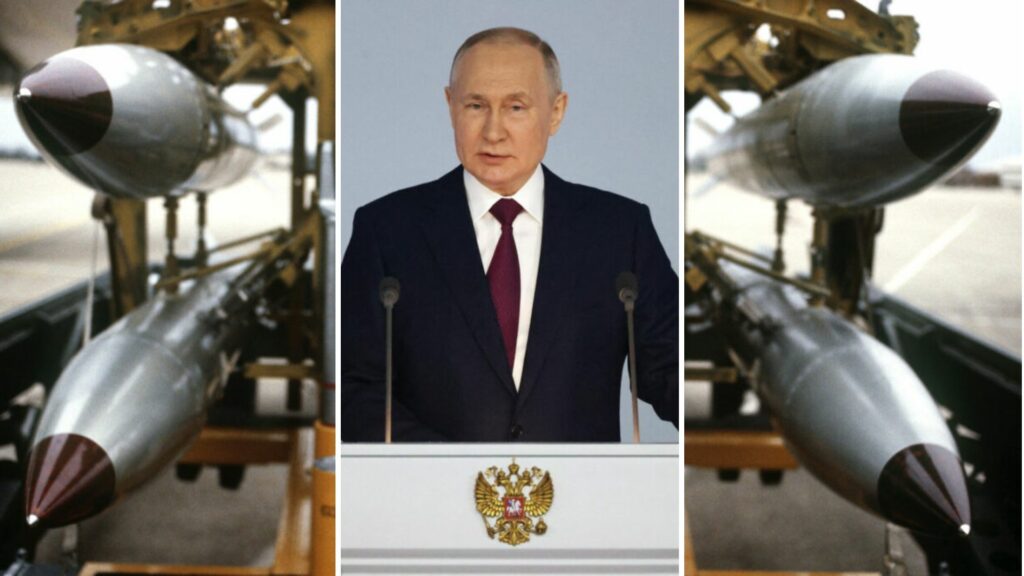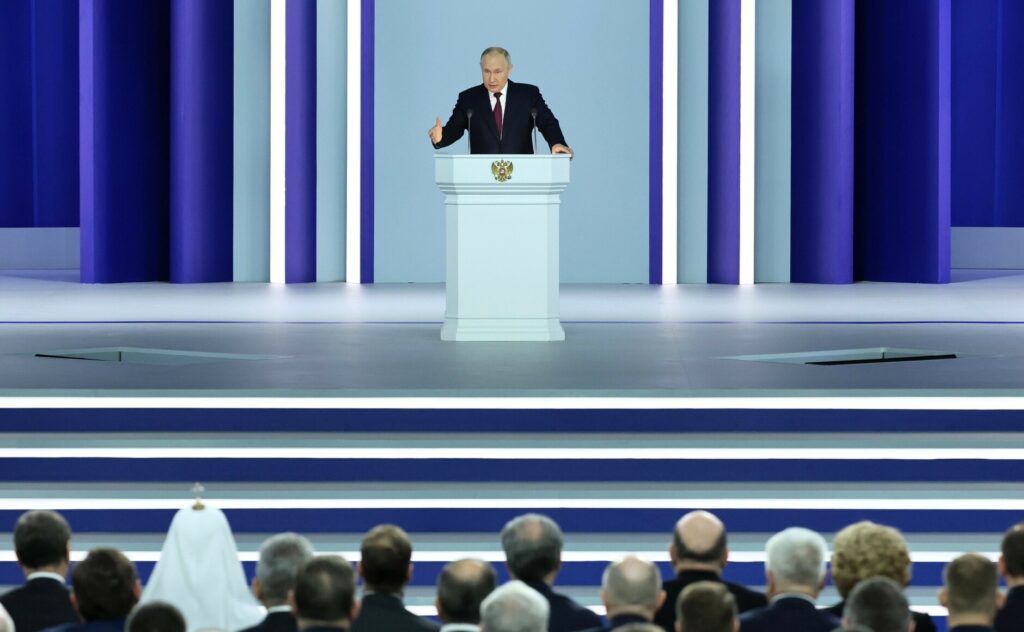Putin's announcement yesterday that Russia will suspend its participation in the last remaining nuclear weapons agreement with the US has been deemed "completely reckless" by a nuclear arms expert, though not entirely surprising.
The declaration is yet another instance of Russia reminding the world of its fearful capability, to which it has alluded in several menacing proclamations in the year since its invasion of Ukraine. Save for a five-year period after the US withdrew from the Anti-Ballistic Missile Treaty in 2002, Russia has had more nuclear arms than any other nation since the late 70s.
And though we arguably live in the most perilous era humanity has ever known, the success of non-proliferation treaties should not be overlooked. Despite Russia and the US dominating the global share of nuclear warheads (their collective arsenals comprise over 90% of nukes worldwide), the total number of these civilisation-ending bombs has fallen hugely since the peak in 1985 – today's nuclear stockpile is less than one fifth what it was then.
Yet the importance of this significant decrease brings little solace in light of the power that just one bomb has to obliterate a region. And though Belgium is not a nuclear capacity, it serves as a host for US warheads, making it a certain target, were tensions ever to reach that point.
More concerning is the stepping-up of rhetoric on both sides, both Biden and Putin are adamant in their opposition. And with EU and NATO stepping up their support for Ukraine, the stakes couldn't get much higher.
In an interview with The Brussels Times last week, the President of the Bulletin of the Atomic Scientists spoke about their infamous Doomsday Clock now being closer to midnight than at any point in history. Speaking of the Cuban Missile Crisis in October 1962, the Bulletin's then-editor wrote whilst flying: 'I don't know if this is ever going to be published, and I don't know if there's going to be anything for this plane to land on.'
Not a rash piece of sensationalism, this was the fear of an expert who knew better than almost anyone how great the risk was. Despite having fewer nuclear arms today, are we closer than ever to the point of no return?
Let @Orlando_tbt know.
Belgium in Brief is a free daily roundup of the top stories to get you through your coffee break conversations. To receive it straight to your inbox every day, sign up below:
1. Basic income not a 'miracle cure' for poverty, Belgian study shows
Basic income — giving an unconditioned salary to all citizens to keep them out of poverty — has been hailed as a solution for reducing spiralling inequality. However, one Belgian study has found it is not quite that simple. Read more.
2. 'Completely reckless': Anti-nuke group condemns Putin's decision to suspend nuclear treaty
Russian President Vladimir Putin on Tuesday suspended his country's participation in the New Start Treaty, the last remaining bilateral nuclear weapons agreement between Russia and the US. In terms of nuclear warheads, the US is second only to Russia, yet the arsenals of both countries dwarf any other nuclear power. Read more.
3. Sahara dust: Large cloud could turn Belgian skies orange this week
A cloud of dust from the Sahara desert is currently above the Atlantic Ocean and will likely reach European shores on Wednesday, forecasts from the Copernicus Atmosphere Monitoring Service (CAMS) show. Read more.
4. Switzerland named safest country in Europe, Belgium ranked 25th
Switzerland is the safest country in Europe, according to a new study found that looked into metrics such as homicides, assaults, road fatalities, natural disaster risk, and global peace index. Belgium ranks 25th. Read more.
5. Justice Minister Van Quickenborne speaks from his safehouse
Belgian Justice Minister Vincent Van Quickenborne has twice been forced into hiding with his family, after receiving death threats from drug traffickers. And he is likely to spend more time in safehouses, as he warns of a new phase in narcoterrorism. Read more.
6. Rubens masterpiece returns to Belgium after 200 years
After 200 years outside the country, Sotheby's unveiled a masterpiece by the venerated Flemish painter Peter Paul Rubens on Tuesday in Brussels. 'Portrait of a Man (as the God Mars)' was done in the 1620s and encapsulates the Baroque master's power of expression and fascination with the classical world. Read more.
7. Brexit in Brussels: the exhausting art of disaster control
Many, in Brussels, saw Brexit as a disaster and understood that a bad Brexit deal would make the disaster even worse. How this was avoided is explained in a fascinating first-hand account by a senior member of the EU’s Brexit task force. Read more.


